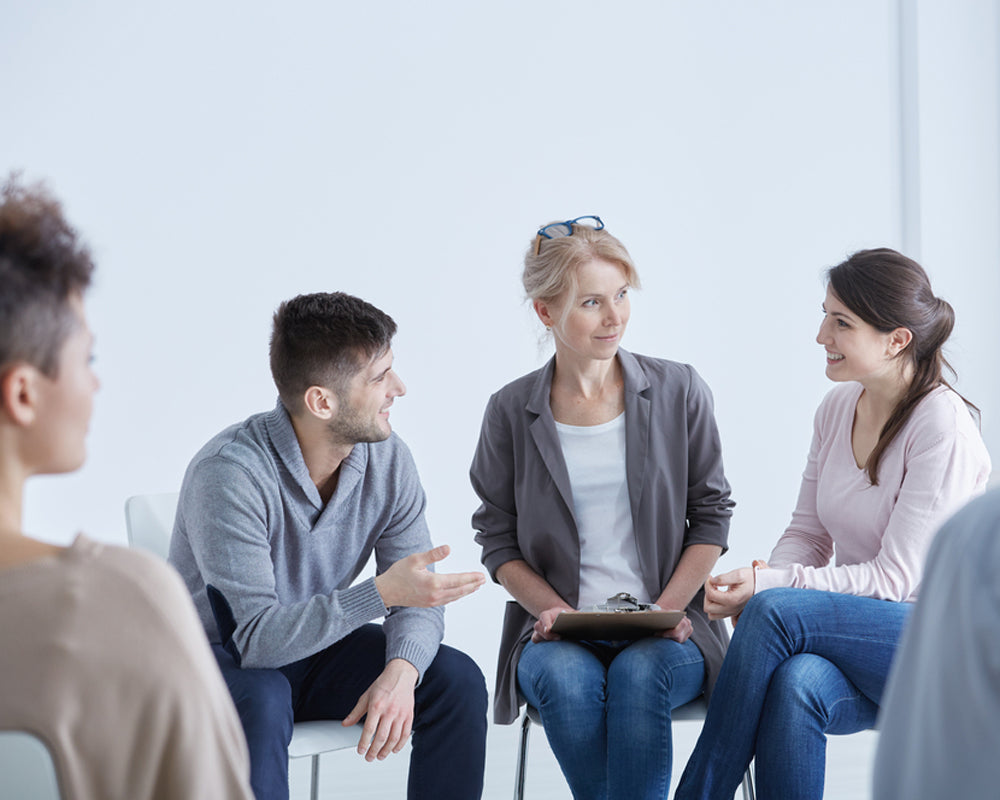
Article Detail
- The Calm Central Admin
SOCIAL ANXIETY - OVERVIEW
Social anxiety, SAD, or sometimes social phobia, is a strong fear of social and public situations, for example eating in a restaurant, to shop and stand in line in stores or talk to someone you do not know. Social phobia can also mean a fear of blushing, fainting or being watched an audited. Often these fears are irrational and exaggerated, but occasionally there can be real physical problems behind them.
Social phobia often leads to a behavior characterized by avoidance, making every day life difficult to handle. The anxiety can vary in intensity. Some people with the disorder are able to live a fairly normal life, while others completely avoid going even going outside their home.
SOCIAL ANXIETY - SYMPTOMS
The symptoms of social anxiety are similar to those of general anxiety:
- Sweating
- Difficulty in concentrating
- Shortness of breath
- Diarrhea
- Flushing
- Panick attacks
- Fear of going crazy
- Feeling constantly audited
Common situations where individuals with SAD feel uncomfortable:
Sitting on the bus, train, airplane or other enclosed spaces.
Eating at a restaurant, at a coffee break with colleagues.
Shopping.
Standing in line.
Sitting in a classroom.
Traveling.
Visiting friends and family.
Meeting new people at a social event
DEGREE OF SOCIAL ANXIETY
SAD can be categorized into mild, moderate and severe cases. In case of mild social anxiety, the person might feel mild to moderate anxiety in certain social situations, but rarely chooses to avoid these situations, and rarely even find out they have the disorder. Their quality of life is affected, but they can function quite normally. In cases of moderate social anxiety person experiences moderate to severe anxiety in many social situations and also tends to avoid certain of these situations. Their quality of life is strongly affected and some social interactions can be very problematic. In cases of severe social anxiety, the person feels a strong anxiety in most social situations and also tends to avoid most or all social situations and interactions. Their quality of life is obviously greatly affected by this, and their everyday life becomes severely restricted.
SOCIAL PHOBIA - TREATMENT
Medicine, Psychiatric drugs
Anti-depressant medication (SSRIs) such as Lexapro, has been shown to be quite effective in treating social phobia, through a dampening in anxious and panicky emotions. Anti-anxiety medication, such Sobril and Xanax, are effective against the anxiety itself, but has no proven positive effect on SAD in the long run.
Therapy, CBT
- Self Help
There are many good self-help programs for social phobia. Some are on the internet, and these you often have to pay for. My advice is to avoid these and save your money, you should instead use the self-help programs of equivalence that are free, there are good ones out there. The most effective type of self-help is exposure to social interactions that create anxiety, with a gradual challenging of social fears and through exposure to what is unpleasant.
- CBT
Cognitive behavioral therapy has shown good results with treating social phobia. Nearly 80 percent of SAD-cases are treated successfully with CBT. The essence of the treatment is to talk with a pshychologist, about the anxious feelings that arise in certain situations, and learn methods and tools to manage these feelings in a more rational way. After this process, the individual is exposed to anxiety-provoking situations, in order to learn to manage the anxiety that arises. Step by step, the social phobia is confronted. It should be mentioned though that CBT can be tough for some, because it requires a lot of energy and determination to confront your fears in this manner.
MY RECOMMENDATIONS FOR TREATMENT OF SOCIAL ANXIETY
Priority 1: CBT therapy or self help through exposure.
Priority 2: SSRIs, SNRIs (antidepressant medication)
Priority 3: Anti-anxiety medication.
RELATIONSHIP WITH OTHER DIAGNOSES
It is very common for people with SAD also suffer from panic attacks, because it is a type of panic disorder. Since social anxiety can be a major handicap in everyday life, it is also common for people with social anxiety disorder to become depressed. Generalized anxiety is also common in cases of social phobia.
One could say that the disorder is a fairly common phenomenon among people with other psychological problems, since psychological problems often lead to ending up "on the outside", rendering you unable to partake in social interactions that are otherwise important for social development.
SOCIAL PHOBIA - RESEARCH AND FACTS
In the US, about 10-15% of the total population suffer from the typical of social phobia discussed in this article. An additional 10-15% suffer from situational social anxiety, where they are overly concerned about certain types of social situations, such as talking in groups.
Women, especially teenage girls, are extra susceptible to social anxiety.
CAUSES OF SOCIAL PHOBIA
Social phobia is to some extent hereditary, meaning that there is an increased prevalence among those who have a history of family members with the same disorder. However, it has not yet been genetically isolated.
A common cause of social disorders is that something dramatic happens in a social context for an individual. For example one might have passed out in public, accidentally said the wrong thing during a presentation in school or have been bullied. The event leads to an anticipation of future anxiety, a fear that the same unpleasant experience will repeat itself in similar situations, leading to an escalation of the disorder.
Categories
Recent articles
What Is Social Anxiety - Am I Suffering From It?
- The Calm Central Admin
Overcome Your Social Anxiety
- The Calm Central Admin
Social Anxiety: 6 Common Myths and the Truth
- The Calm Central Admin

